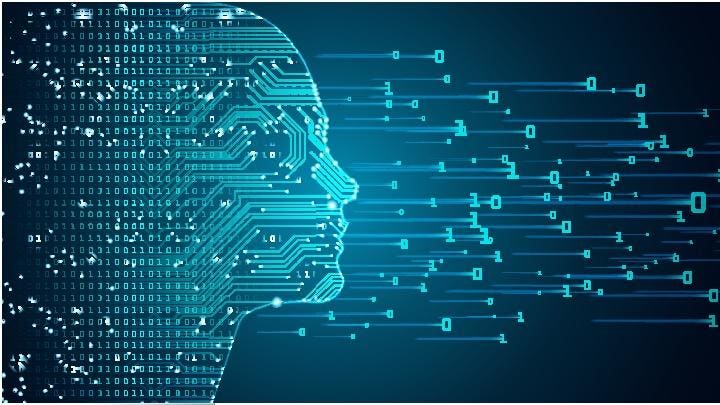Does Artificial Intelligence Threaten Programmers?

As the CEO of the TenderHut Technological Capital Group, I have been noticing a significant increase in the interest surrounding artificial intelligence (AI) in recent months. This surge in popularity can be attributed, in part, to the release of OpenAI’s ChatGPT and its rapid development, capturing the attention of many. Additionally, a letter signed by influential figures, including Elon Musk and prominent professors, calling for a pause in the training of advanced AI systems, sparked further curiosity.
Given my position in the technology industry, people often approach me with concerns about the impact of AI on the role of programmers and whether their jobs are at risk. Until now, programmers have enjoyed a higher earning potential and held significant influence in the companies that employ them. However, with the current economic climate, the job market has become more uncertain. The question remains, will AI eliminate job opportunities for programmers?
Fortunately, I have great confidence in Polish programmers who have consistently been ranked among the top 10 worldwide. This can be attributed to various factors, including a robust educational system that places emphasis on STEM fields, allowing Polish programmers to gain experience in international corporations. Additionally, Poland’s location in the Central European time zone provides them with advantageous opportunities.
Interestingly, approximately three-quarters of Polish programmers have higher education, while the remaining acquire practical skills through experience. With 18 public technical universities in Poland, this is a significant number for a country with a population of just under 38 million. Students begin facing professional challenges as early as their second or third year of studies. Polish developers are proficient in English and handle international projects successfully.
One particular aspect of AI that has garnered attention is generative AI (GenAI), of which ChatGPT is just one example. GenAI systems have the capability to create new textual, audio, or video content. Experts from McKinsey & Company suggest that we are still in the early stages of understanding the potential of GenAI, which could bring about significant changes in various aspects of our lives. In fact, McKinsey estimates that the productivity gained through GenAI could increase the value of the global economy by trillions of dollars.
The areas where the most substantial benefits are expected include customer service, marketing and sales, software engineering, and research and development. In the software development sector alone, the productivity increase could reach up to 32%, resulting in $414 billion annually. It is crucial to remember that software engineering is no longer limited to tech giants and impacts our daily lives on many fronts.
Should programmers fear AI? The answer is no. Rather, programmers should stay informed about the latest trends and embrace collaboration with AI. AI will not replace programmers entirely, but those who can effectively utilize AI will outperform those who are resistant to it. At this stage of AI development, experienced programmers who work on complex systems are still essential. AI can automate certain tasks and improve efficiency, such as code reviews, speeding up the process and potentially reducing costs.
Automation may also impact simpler tasks that were traditionally assigned to junior programmers. However, this does not mean that we will stop hiring them. As their experience grows, they will work on more complex systems. The training methods may change, as AI can more efficiently assess the progress of learners compared to humans.
GenAI systems like ChatGPT also have the potential to bridge the gap between industry outsiders and technology. Project managers, for example, can easily access best practices and alternative technologies through AI, fostering closer collaboration with development teams and enhancing the quality of solutions.
Furthermore, clients in the IT industry can use GenAI to assess suppliers and their solutions more efficiently, leading to higher-quality work and better preparation for meetings. However, the issue of responsibility for AI’s work remains unresolved, and legal acts are awaited to clarify the treatment of imperfections and errors caused by AI.
Despite these advancements, more complex tasks involving software architecture, problem-solving, and client communication still require human skills and empathy. Programmers possess not only technical knowledge but also the ability to make crucial decisions, adapt to changing demands, and think creatively. While AI can automate some aspects of their work, it cannot fully replace the value that programmers bring to creating software.
In conclusion, while the rise of AI may disrupt certain aspects of programming, programmers should not fear losing their jobs. Instead, they should adapt to the changing landscape, collaborate with AI, and continue to hone their unique skills that set them apart from machines. Programmers will always play a crucial role in making key decisions, solving complex problems, and creating valuable software.
